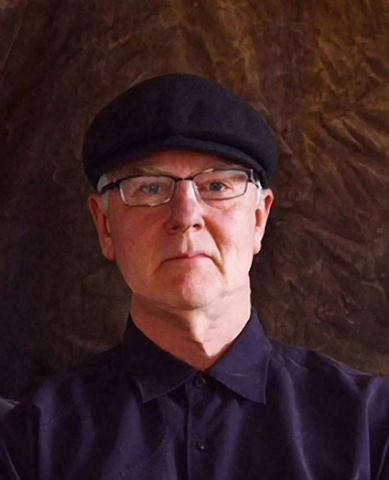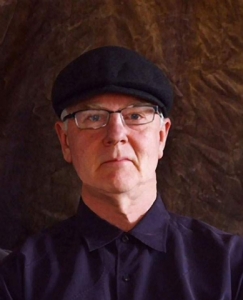Peter Nasmyth: From Rooftops to Glaciers
‘I have a genuine affection for Georgia. I am not cynical about the country and this I think helps the understanding. Georgia is not like us (the West) with a desire to be all neat and regulated. Neither is it a shining example of political stability. It is a country proud of its emotional originality and contrariness.’ [Interview with Peter Nasmyth, Tbilisi, October 2008]
Georgia Today met up with Peter Nasmyth- writer, publisher and a founder member of the British-Georgian Society and the Tbilisi Heritage Group - on one of his frequent visits to Georgia. Warding off the autumn chill with a warm mug of Blue Lady tea in Prospero’s cafй on Rustaveli Avenue, I got to know the Englishman beneath the flat cap who has been enamoured with Georgia since 1987.
Q: How did your love affair with Georgia begin?
A: I came as a tourist, although at the time I was also a journalist specialising in perestroika, writing mainly features from and about the former Soviet Union for various British newspapers and magazines (Observer/Guardian/Independent/Times etc.).
Q: What kept you coming back?
A: I was asked to write a book about the country in 1990– but it didn’t come out until just as the civil war began: ‘Rebel in the Caucasus’ (Cassell ‘92), whereupon I became a pundit by accident rather than design (‘Can you predict which way the civil war will go?’ etc. Luckily for me, although not Georgia, I got that one right: “Considerably worse!”). The book was republished in 2006 as ‘Georgia in the Mountains of Poetry’ with a new, post-Communist section. But at the time Tbilisi had absolutely nowhere to sell it. This was an impetus towards starting a bookshop, which I did with two excellent Americans, Steve Johnson and his brother Eric.
He is referring to the well-known and well-loved Prospero’s Bookshop and Cafe on Rustaveli. Nestled in a tiny courtyard behind number 34, the two-part bookshop is said to most likely have the widest selection of English language books in the Caucasus.
Prospero’s Books took its name from the 1991 movie by the same name, which bears the name of a character from Shakespeare’s play The Tempest.
The bookstore has a large selection of books in English (and a few in Georgian!), specializing in history and geography of the region, travel guides, as well as a selection of fiction and non-fiction, reference books and children’s books. The cozy cafй has an indoor-outdoor section to suit all weather.
Q: What made you decide to set up Propsero’s bookshop&cafe? What is your vision for Prospero’s in future?
A: The idea of Prospero’s actually came about via my friend Irakli Topuria who created and still runs International House. I’d helped him set up his school bookshop and as we were toasting its opening, I jokingly lifted my glass saying: ‘Here’s to our next bookshop on Rustaveli Avenue.’ It was Irakli who then found the site at 34 Rustaveli [the soon-to-be bookshop was empty and the cafй section was purchased later and converted from a failed clothing store] and sent me a video saying: ‘Were you serious?’ I realised that we probably were - at this time Tbilisi had no proper coffee, almost no English language books or a foreigner-friendly meeting place with a notice board - so we bought the property between us. I then ran out of money and couldn’t find any co-investors, until Steve and Eric came along and did a fantastic job at creating the Prospero’s you see today, aided and sustained by Steve’s wife Tamara.
Having spent a large amount of his time in Georgia rambling about the Caucasus Mountains and discovering and documenting numerous walking routes (to be included in his guide: ‘Walking in the Caucasus’), Peter seems to have found his favourite destination in Svaneti (the northernmost region of Georgia bordering Russia to the north and Abkhazia to the West).
Q: You visit Svaneti almost every trip here. What is your attraction to the region?
A: I first visited Svaneti in the Communist times. Illegally as it turned out – so I borrowed a typewriter and typed the word ‘MESTIA’ onto my Soviet visa. It worked a charm. Mestia at the time was a dump-like Soviet town surrounded by the most extraordinary paradise of a landscape. My trip is described in ‘Georgia in the Mountains of Poetry.’ Since then I have watched it evolve, first to a virtual no-go region due to banditry, thence to its nadir today. I just came back from Mestia and can, hand on heart, say that it’s now becoming the place I dreamed it might all those years ago - with a fully functioning tourist economy. This has been a relatively recent development but has always seemed about as inevitable as the steady shrinkage of the Chalati glacier (about 40 metres this year). I have been recording both.
Q: You are a founder member of the Tbilisi Heritage Group. Where does your love of architecture come from and how do you view the current architecture scene in Tbilisi?
A: I’ve watched Georgia transform in the most extraordinary way, from Soviet paradise resort to civil war-zone with no water and electricity, then to a super right-wing free-market in the early 2000s. Throughout the entire period people didn’t really trust money, preferring, if they could, to put their savings into property. This received a massive boost in the Saakashvili era with the President’s love of what he believed was modern architecture and a massive and furious construction boom. This led to the partial destruction and rebuilding of the Kala region of the old town. Heart-breaking to those of us who treasured the unique historic ambience of Tbilisi, but supported by many of the inhabitants who had their houses done up for free. However, there was a catch: the methods used for renovation were the quickest and simplest, usually requiring the house to be knocked down and rebuilt as a pastiche of itself (still happening today). A kind of epic reconstruction that transformed the old town into a new town. The slower, more culturally sensitive methods were not used - as in other post-Soviet capitals like Budapest of Prague - because instant, dramatic results were required. Those of us leaving and coming back to the city every few months noticed the transformation more vividly than the local inhabitants. It was like a nightmare manifesting before our eyes - the nation’s leaders making all the mistakes we had made in the West during the 1970s. Tourists were, and still are, blinking and asking themselves ‘what happened here?’ when walking round Kala.
Q: If you could say a few influential words to the Tbilisi city planners, what would you say?
A: The most important action for the nation’s planners and investors is to realise that redevelopment can be done less quickly, and more cheaply and sensitively. Also, for the inhabitants to be told this and not be bamboozled by the building propaganda. To restore a house properly can be done far more cheaply than demolishing and reconstructing it. However, this prevents the building of additional floors and therefore a quick profit in extra square metres. But the developers also don’t realise that profit drops when the historic ambience is lost. This was fortunately learned by the city authorities in Budapest when they discovered that historic properties were fetching much higher prices than the larger-square-metred rebuilds. Ironically, this process is also happening in Tbilisi’s historic properties (some ridiculous prices are being paid for undemolished hovels), but still the message isn’t getting through - which is why so many of the new builds in Kala are standing empty, unsold, because nobody likes them. Their charm has been killed. And historic charm is an increasingly rare and significantly bankable commodity. With every old house that is removed and replaced by a new, taller pastiche, the whole region loses a few more dollars per square metre - and the city its historic ambience and attraction to tourists (its most genuine, sustainable, long-term industry). This will happen in the bath region if the Mirza Shaffi development goes ahead. I feel that those of us belonging to nations who have made these mistakes of our own should try and tell the authorities not to repeat what we have done, but engage in some truly modern development - which is to keep the historic ambience while creating clean, efficient, functioning, 21st century interiors. The international funding authorities should also be reminded of this - like the World Bank - who need to police their beneficence more carefully in Georgia. If this is done, then Georgia stands in very good stead for the future as a tourist destination.
Peter Nasmyth continues writing both books and articles, heading up his own publishing house in London- MTA Publications – and discovering trails around Georgia. You may see this charming Devon-born gentleman on your next visit to Prospero’s- keep an eye open for the flat cap and blue-eyed smile.
Katie Ruth Davies












